第10章 IV(2)
Claude might have enjoyed the large and somewhat gross cartoons with which Mr. Wheeler enlivened daily life, had they been of any other authorship. But he unreasonably wanted his father to be the most dignified, as he was certainly the handsomest and most intelligent, man in the community. Moreover, Claude couldn't bear ridicule very well. He squirmed before he was hit; saw it coming, invited it. Mr. Wheeler had observed this trait in him when he was a little chap, called it false pride, and often purposely outraged his feelings to harden him, as he had hardened Claude's mother, who was afraid of everything but schoolbooks and prayer-meetings when he first married her. She was still more or less bewildered, but she had long ago got over any fear of him and any dread of living with him. She accepted everything about her husband as part of his rugged masculinity, and of that she was proud, in her quiet way.
Claude had never quite forgiven his father for some of his practical jokes. One warm spring day, when he was a boisterous little boy of five, playing in and out of the house, he heard his mother entreating Mr. Wheeler to go down to the orchard and pick the cherries from a tree that hung loaded. Claude remembered that she persisted rather complainingly, saying that the cherries were too high for her to reach, and that even if she had a ladder it would hurt her back. Mr. Wheeler was always annoyed if his wife referred to any physical weakness, especially if she complained about her back. He got up and went out. After a while he returned. "All right now, Evangeline," he called cheerily as he passed through the kitchen. "Cherries won't give you any trouble.
You and Claude can run along and pick 'em as easy as can be."
Mrs. Wheeler trustfully put on her sunbonnet, gave Claude a little pail and took a big one herself, and they went down the pasture hill to the orchard, fenced in on the low land by the creek. The ground had been ploughed that spring to make it hold moisture, and Claude was running happily along in one of the furrows, when he looked up and beheld a sight he could never forget. The beautiful, round-topped cherry tree, full of green leaves and red fruit,--his father had sawed it through! It lay on the ground beside its bleeding stump. With one scream Claude became a little demon. He threw away his tin pail, jumped about howling and kicking the loose earth with his copper-toed shoes, until his mother was much more concerned for him than for the tree.
"Son, son," she cried, "it's your father's tree. He has a perfect right to cut it down if he wants to. He's often said the trees were too thick in here. Maybe it will be better for the others."
"'Tain't so! He's a damn fool, damn fool!" Claude bellowed, still hopping and kicking, almost choking with rage and hate.
His mother dropped on her knees beside him. "Claude, stop! I'd rather have the whole orchard cut down than hear you say such things."
After she got him quieted they picked the cherries and went back to the house. Claude had promised her that he would say nothing, but his father must have noticed the little boy's angry eyes fixed upon him all through dinner, and his expression of scorn.
Even then his flexible lips were only too well adapted to hold the picture of that feeling. For days afterward Claude went down to the orchard and watched the tree grow sicker, wilt and wither away. God would surely punish a man who could do that, he thought.
A violent temper and physical restlessness were the most conspicuous things about Claude when he was a little boy. Ralph was docile, and had a precocious sagacity for keeping out of trouble. Quiet in manner, he was fertile in devising mischief, and easily persuaded his older brother, who was always looking for something to do, to execute his plans. It was usually Claude who was caught red-handed. Sitting mild and contemplative on his quilt on the floor, Ralph would whisper to Claude that it might be amusing to climb up and take the clock from the shelf, or to operate the sewing-machine. When they were older, and played out of doors, he had only to insinuate that Claude was afraid, to make him try a frosted axe with his tongue, or jump from the shed roof.
The usual hardships of country boyhood were not enough for Claude; he imposed physical tests and penances upon himself.
Whenever he burned his finger, he followed Mahailey's advice and held his hand close to the stove to "draw out the fire." One year he went to school all winter in his jacket, to make himself tough. His mother would button him up in his overcoat and put his dinner-pail in his hand and start him off. As soon as he got out of sight of the house, he pulled off his coat, rolled it under his arm, and scudded along the edge of the frozen fields, arriving at the frame schoolhouse panting and shivering, but very well pleased with himself.